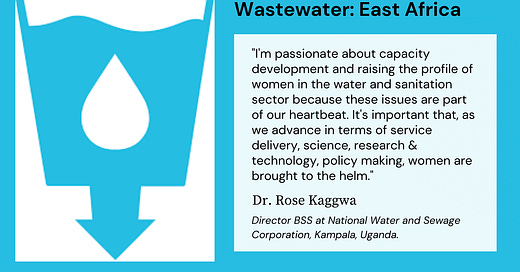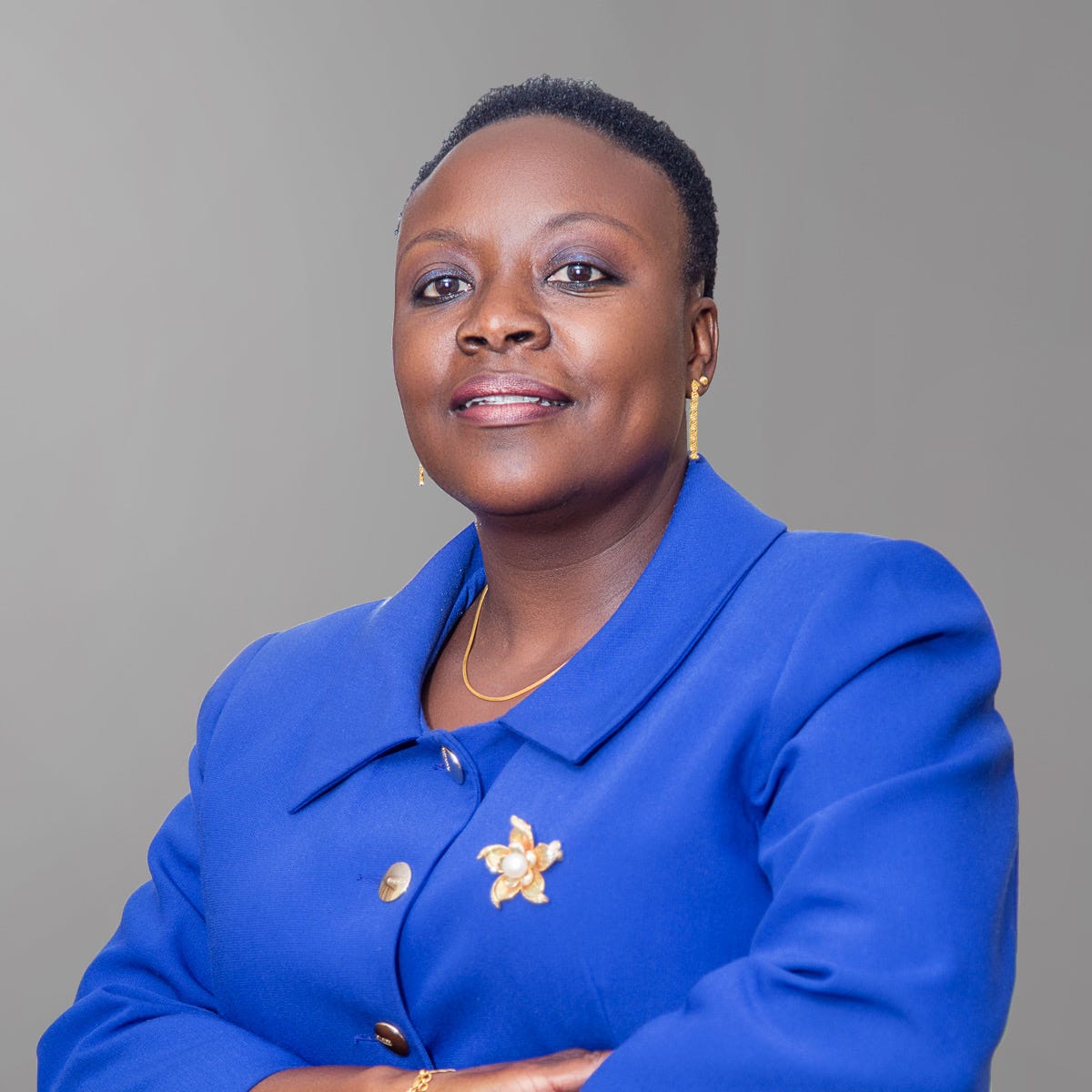The wastewater podcasts, part 3: East Africa
An interview with Dr. Rose Kaggwa (Director BSS at National Water and Sewage Corporation, Kampala, Uganda)
This is part 3 in a series of blogs about wastewater that I will publish before 24 December. All are based on podcast interviews I did in the past months, in cooperation with UN-Habitat, with seven experts worldwide.
Dr. Rose Kaggwa in Uganda
We started the podcast series with guests from Ghana and Trinidad. In the third podcast in this series, we go back to Africa, to Kampala in Uganda, where our guest is Dr. Rosa Kaggwa. She has worked at various management levels within National Water and Sewerage Corporation (NWSC) and is now the Director of Business and Scientific Services.
Dr. Kaggwa has over 30 years of experience in the water sector and has spearheaded partnerships with countries worldwide, like Bangladesh, India, and many African countries. She holds a doctorate in Environmental Resources from UNESCO-IHE Institute for Water Education, The Netherlands.
Although the main focus in this series of podcasts was on wastewater, we sometimes drifted in our talks to related areas like health, the environment, the climate crisis, or the closely related field of water and sanitation. And since Rose has won several international awards for her work, including the Women in Water Award from the International Water Association, we started our talk on the role of women in water.
Promoting the role of women in water
Thirty years ago, Rose was the only woman with an Industrial Chemistry degree in her class at the university. She was one of the very few women who joined the industrial workforce. Thirty years later, she notices that female participation has changed slightly, but not much. She says in the podcast:
"Women are the ones looking after the children. They're the ones looking after the homes and looking after the family. So issues of water and sanitation, these things are part of our heartbeat. And it's important that women are brought to the helm as we advance in terms of service delivery, science, research and technology, policy making, and decision making." And "I feel it's very important that we raise the voice of women so that they [the practically all-men governing boards] can fully understand. Women fully understand the water challenges or the challenges of not having good sanitation. And they would be able to influence or impact decisions and policy made out there as we continue to grow."
Rose Kaggwa is passionate about encouraging young girls in their ambitions. She notes a pattern where girls study engineering, but when they leave university, most find work in the "softer sector" while the men make careers in engineering and science.
In the podcast, she speaks passionately about the many initiatives she has started or been actively involved with. For instance, creating international networks for women through the African Water Association brings professional women together. They support each other in mentoring and coaching and learn from each other. This leads to a more holistic approach to dealing with issues of gender and also highlights how women can raise their voices. At the national level, Rose contributed to establishing the women's professional network. There are also school water and sanitation clubs that are run mostly by women.
Financing wastewater treatment is a challenge like in other regions of the world
Some of the themes discussed in the podcasts on West Africa and the Caribbean came back in Rose Kaggwa's interview. For instance, the challenges of finding enough financing. Like in other countries, it is hard to prioritize water issues in government budgets. Looking back at the past 30 years that she has been professionally active in this field of work, she notes that infrastructure development is improving. Still, it is not as high on the political agenda as it should be.
A lot of the improvement in wastewater treatment capacity, either new or upgrading existing structures, needs external support from development partners. Then national governments will contribute to those projects too. More recently, Rose noted that the interest in wastewater and sanitation increased during the COVID-19 pandemic, where sanitation, hygiene, and health issues were closely related.
But it's difficult to generalize; different experiences exist in other countries. A positive development is an attempt by the African Ministerial Council for Water to address the need for better governance and policy by adopting the African Sanitation Policy Guidelines. Now that these have been adopted, it is tested in practice. And that will likely be very different in different countries. For instance, in some countries, the water issue responsibility is fragmented between ministries. And the coordination between national, provincial, and municipal levels can also be challenging.
Population growth and urbanization in Sub-Sahara Africa
A specific challenge for Africa is the rapid population growth that will likely continue in the second half of this century. It's a trend that is combined with urbanization. This raises the challenges of providing timely and ample wastewater treatment services. The growing cities need proper structures to collect, treat, and dispose of wastewater.
It's unlikely that sub-Saharan Africa will reach a coverage of 80 or 100 percent sewage systems. Therefore there is increased attention to decentralized systems and physical storage management. Sanitation is also essential; Rose calls it "dignity for all" and mentions the need for finding the right mix for an agreeing population as a priority.
Listen to the podcast
These are just some of the many issues we discussed in this podcast; I encourage you to listen to the full podcast via the button below (or you can find it on Spotify or Apple Podcasts).
Tomorrow, I will probably publish the following wastewater newsletter, number four in a series of six.
Comments are always welcome.
And subscriptions too.
You may also like:
And:









It seems like a lot of things would work better if more women were involved ... time to make this change happen!
So many socio-political aspects to consider for us to reach "dignity for all". One of the podcasts that highlighted to me how little I really know about sanitation outside of the western world. I got some catching up to do. Thank you for raising awareness.